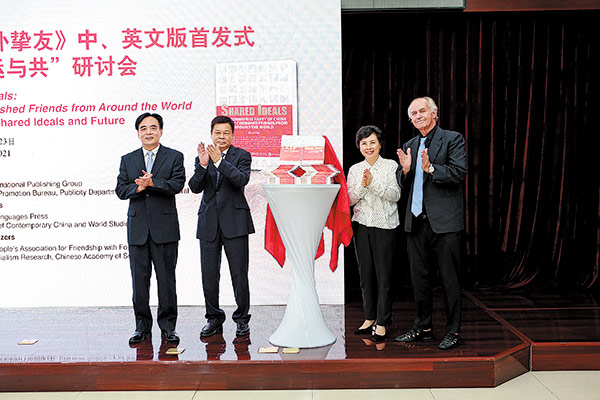

In the essay "In Memory of Norman Bethune", which was published by Chairman Mao Zedong on Dec 21, 1939, he praised Doctor Bethune as a man who "is already noble-minded and pure, a man of moral integrity and above vulgar interest, a man who is of value to the people".
The essay was written to mourn and commemorate Bethune, a great fighter for internationalism, a member of the Communist Party of Canada, and a well-known thoracic surgeon, who passed away at the age of 49 in 1939 after devoting nearly two years to assisting China's war effort at the front line.
Believing that he could be helpful, Bethune set out for China on Jan 8,1938, when Japanese imperialists were in the midst of a full-fledged invasion of China.
He first arrived at the Eighth Route Army's office in Wuhan, where he was received by the man who would become New China's first premier, Zhou Enlai, and soon left for Yan'an, where he would meet with Mao.
He set out on a rugged trip to the front line-the Communist Party of China's Shanxi-Chahar-Hebei base-where, upon arrival, in single week, he gave health checkups to 521 wounded soldiers. Over the course of the next four weeks, he performed 147 operations.
To improve efficiency, Bethune invented a folding operation table, which consisted of two connected wooden medicine boxes on horseback that could quickly and easily be set up, saving many lives of the Eighth Route Army.
When Japanese troops launched a large-scale attack in October 1939, Bethune insisted on finishing the last surgery in the tents, which were located just 4.5 kilometers from the battle, during which he cut his middle finger. It was to prove an ultimately fateful decision.
On Nov 1, Bethune received a soldier with erysipelas and cellulitis. In the course of treating the soldier, the cut in Bethune's finger became infected by the deadly bacteria. He soon became seriously ill, passing away 11 days later.
Today, 82 years after Bethune's death, he remains a hero in China, one whose moving deeds have educated generations of Chinese, as well as being a lasting symbol of friendship between the country and the Canadian people.
It was not until the book Shared Ideals: The Communist Party of China and its Cherished Friends from Around the World was published on July 23 in Beijing that readers from around the world better learned the historical details of these international friends who fought alongside the Chinese.
Written by Shan Wei and co-published by China International Publishing Group and Foreign Languages Press, the book, which has both a Chinese and an English version, compiles the stories of 18 representative international friends of the CPC who have made outstanding contributions to China during the past 100 years.
That includes famous American writer and journalist Edgar Snow, who wrote many reports from the front lines of the civil war and introduced the CPC to the world, America-born Arbas George Hatem, who served as a health consultant to the CPC's Central Military Commission and later joined the CPC, as well as Indian doctor Dwarkanath Kotnis, who worked as a surgeon for the Eighth Route Army and then served as president of the Bethune International Peace Hospital.
"As we celebrate the 100th anniversary of the CPC's founding, we should never forget that for 100 years, many international friends have enthusiastically and selflessly helped the CPC and the Chinese people through their great spirit of internationalism," says Shan, who is also the deputy director of the manuscript review department of the seventh research bureau of the Party's History and Literature Research Center of the CPC Central Committee.